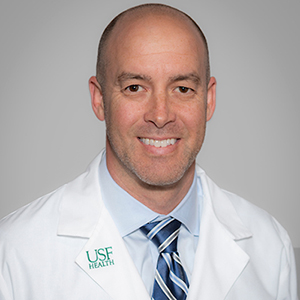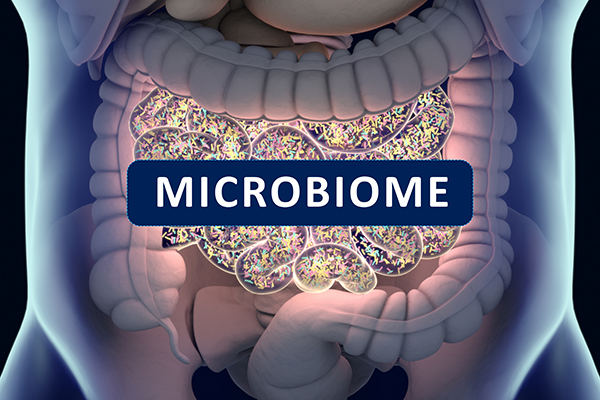The future of medicine depends in part on a better understanding of the microbiome – communities of bacteria, fungi and other microbes in our bodies – and their relationship to a variety of illnesses, such as cancer. By learning how a person’s estimated 30 trillion bacterium influence health, aging and disease, researchers with USF’s Initiative on Microbiomes are stepping closer to interventions they hope will address some of health care’s greatest challenges.
How, for instance, can the bacteria in a person’s gastrointestinal tract serve as a pathway for the growth of certain types of cancer? J. Ryan Williams, MD, a researcher at USF Health’s Division of Colon and Rectal Surgery, studies the relationship between the microbiome and cancer of the rectum, and the microbiota of patients with different kinds of disease. This could lead to a positive change in cancer survival rates.
“We’ve been able to take some patients with about a 15-percent chance of having their cancer disappear and increase it up to 38 percent,’’ Williams said. “But we can’t predict who that person is.’’
The microbiome is key in that prediction. Specific bacteria can move with a cancer, so genetic material can be traced from the gut to wherever a cancer might travel or set up a home in the body.
The relationship of the microbiome to colorectal surgery might seem intuitive, Williams said, but researchers need to know more about its cause and effect. Can a person’s microbiome be the actual instigator of cancer itself? Several peer-reviewed papers have been published on this subject, describing the possible association between the oral bacterium F. nucleatum and colon cancer.
“Cancer could be related to the microbiome and the bacteria that’s there. If we find an association, we might be able to predict who is a responder or not a responder and save them from surgery or a radiation that may not work. In fact, we might find new targets for treatment with something as simple as antibiotics.’’
Colorectal surgeon J. Ryan Williams, MD, USF Health Morsani College of Medicine
Other intriguing research looks at whether the microbiome has an adverse effect on patients following surgery to attach two sections of intestine, a procedure known as an anastomosis. Sometimes, the suture will leak, possibly due to an error during surgery. But Williams said that such leaks “may be associated with specific gut microbiota that degrade collagen.’’
Researchers also want to further study the use of probiotics, the so-called “good’’ bacteria, and how they interact with microbiota in patients with inflammatory bowel disease. “Again, the pathways and specific microbiota have not been fully explored,’’ Williams said.
Many questions remain about the influence of microbiota on cancers and treatments as well as the impact of illness on microbiota. Williams and other members of the USF Initiative on Microbiomes seek solutions they hope will ultimately save lives and improve the quality and cost of health care.
The future of this research is exciting, he said. “Everybody is looking at the microbiome now, because we’re now able to better analyze the data.’’
-Story by Kurt Loft


